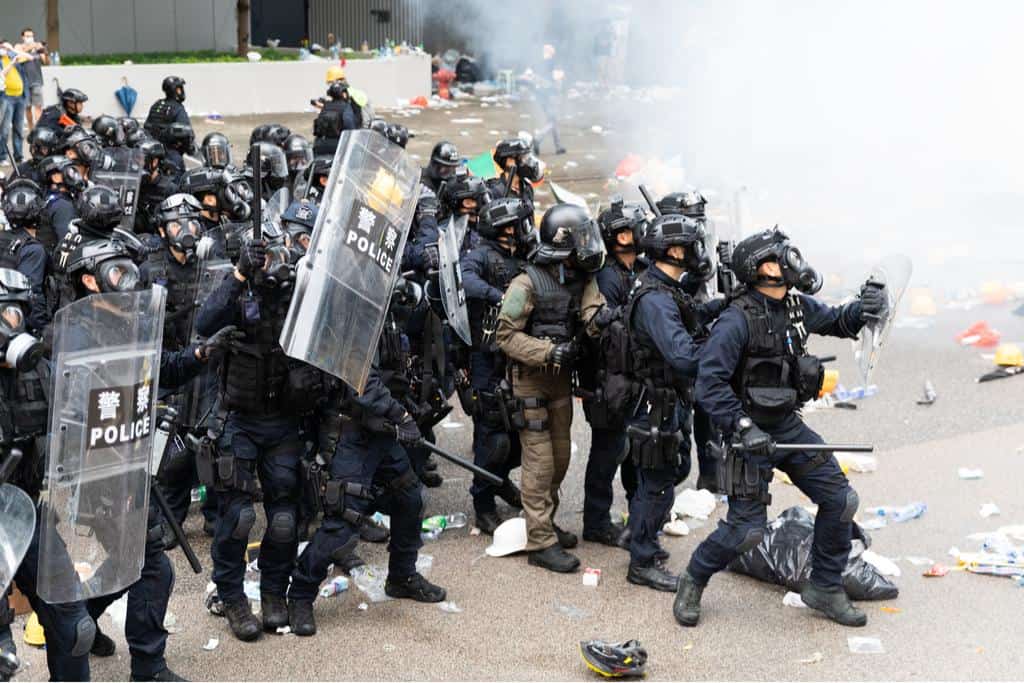
Arrests under China’s controversial national security law for Hong Kong sparks international concerns
Last updated on March 1st, 2023 at 06:39 am
On Friday, the United Nations rights office communicated concerns in its tweet regarding the national security law passed by China for Hong Kong. UN Representative Rupert Colville told journalists that the Office of the High Commissioner for Human Rights was continuing to examine the new law after it came into power and its conformity with global human rights laws.
According to official reports, first person was charged with inciting separatism and terrorism under China’s new security law for Hong Kong. He was carrying a “Liberate Hong Kong” sign in protest as he drove a motorcycle on Friday, the Reuters reported.
#HongKongSecurityLaw: We are alarmed that arrests are already being made under the new law. Definition of the offences are vague and overly broad, which may lead to discriminatory or arbitrary interpretation and enforcement.
— UN Human Rights (@UNHumanRights) July 3, 2020
Learn more: https://t.co/h6efieMrfr pic.twitter.com/optBeO09HW
The law explicitly condemns “subversion, secession, perpetration, and organization of terrorist movements, and clash with a foreign nation or with external elements to jeopardize national security, The Washington Post expressed.
The United States and the United Kingdom have also denounced the new national security law and warned Beijing to either prepare for more sanctions.
Chancellor Angela Merkel also expressed concerns over the new law and stated that Germany would raise China’s human rights situation during its administration of the EU that started this month, DW reported.
Despite severe international criticism and protests by Hong Kongers, Beijing passed the security law on the former British ruled state.
UN representative Rupert Colville told reporters in a press briefing that he believes hundreds might be arrested since demonstrations started on Wednesday. We have heard that around ten people have been arrested under the new law. However, he didn’t have enough information to support the statement right now.
Colville expressed concerns about the “obscure and excessively expansive” definitions of certain offenses in the new law that had been received by China’s National People’s Congress. This may prompt oppressive or inconsistent analysis and sanction of the law, which could sabotage human rights security,” he added.
The OHCHR High Commissioner Michelle Bachelet reiterated worries about constraints on the freedom of speech and expression. Such laws “never to be utilized in criminalizing expression and conduct that is secured under the international human rights law”, The UN News reported.
Also Read:- Hamas and Fatah join hands against Israeli annexation plans




